
Podcasts, Blog Posts & Videos
For injury-prone runDisney runners so you can run painfree.
podcast
Running to the Castle
A podcast for injury-prone runDisney runners on a journey to running magical miles. Join me, Dr. Ali, as I share the secrets I've gathered as a runner, Doctor of Physical Therapy and coach. You'll learn the exact ways I get my clients to the castle strong without feeling broken or held together with KT tape as they cross the finish line.

In this episode of Running to the Castle, you’ll learn how to train for a marathon when your schedule is anything but predictable.
In this episode of Running to the Castle, you’ll learn why the first and last four weeks of your training plan matter more than most runners realize… especially if you’re slow, back-of-the-pack, or injury-prone.
In this episode of Running to the Castle, you’ll learn why so many runDisney runners live in fear of the Balloon Ladies—and how that fear is often rooted in past experiences, not a lack of effort.
In this episode of Running to the Castle, you’ll learn why strength training isn’t the magic fix for every slow or injury-prone runner—and why blindly adding more strength may be doing more harm than good.
In this episode of Running to the Castle, you’ll learn why you can’t diagnose running pain from a Facebook post—and what you should be asking instead.
In this episode of Running to the Castle, you’ll learn how to decide whether to train for the Dopey Challenge on your own or with a coach.
In this episode of Running to the Castle, you’ll learn the top 3 mistakes slower runners make that quietly sabotage their progress—even when they’re doing everything “right.”
In this episode of Running to the Castle you’ll learn how to finish Dopey and enjoy training!
In this episode of Running to the Castle you’ll learn why slower runners need smarter plans, not harder plans, why running 26 miles before race day won’t guarantee you’re ready, and what you actually need to train for instead.
In this episode of Running to the Castle you’ll learn what you actually need to know if you’re starting in a later corral, what challenges to plan for, and how to train for weaving, fatigue, and pacing when you’re not running straight from the start line.
In this episode of Running to the Castle, you’ll learn why you aren’t doing better when it comes to running, even though you’re doing everything right.
In this episode of Running to the Castle, you'll learn why slower runners don’t need to train harder — they need to train smarter. If you've ever felt the pressure to “make up” for your pace with extra miles, strength sessions, or by pushing through pain, this one’s for you.
In this episode of Running to the Castle you’ll learn that if you get swept during the Dopey Challenge at Disney you don’t get the Dopey Challenge medal, and what to do to make sure you do finish the race so you can get all 6 medals.
In this episode of Running to the Castle you’ll learn why you always get pain around mile 8 when you’re running.
In this episode of Running to the Castle you'll learn about the myth of running more automatically making you stronger.
In this episode of Running to the Castle you’ll learn how to keep your body healthy if you’re a hypermobile runner.
In this episode of Running to the Castle you’ll learn how to get a faster proof of time as a slow runner or injury-prone runner so you get a better corral placement.
In this episode of Running to the Castle you’ll learn how to be fast enough for photo stops at runDisney races like the Disney Marathon.
In this episode of Running to the Castle you’ll learn how to make your easy pace easier so running doesn’t feel so hard.
In this episode of Running to the Castle you’ll learn what’s keeping you from getting faster. You’ll learn the #1 mistake that makes slow runners even slower, when they’re actually trying to get faster. Are you making this mistake?
In this episode of Running to the Castle you’ll learn what to do to start recognizing patterns so you can stop getting worse and start to feel better.
In this episode of Running to the Castle you’ll learn 5 Signs You’re Going to Not Finish Dopey.
In this episode of Running to the Castle you’ll learn the top 3 main reasons RunDisney runners do not finish (DNF) their races:
In this episode of Running to the Castle you’ll learn what to do when you have foot pain keeping you from running as much as you want.
In this episode of Running to the Castle you’ll learn how long you need treat your pain when you’re dealing with running injuries.
In this episode of Running to the Castle you’ll learn how to strength train the right way as an injury-prone runner.
In this episode of Running to the Castle you’ll learn the top 5 activities to avoid when you’re strength training as an injury-prone runner.
Blog
For injury-prone runDisney runners to learn the tips to crossing the finish line strong.

Overall this was a great glute workout… I really felt my muscles working. But would it be good for my running clients with knee problems like runner’s knee, knee arthritis, meniscus tears and IT Band Syndrome, just to name a few?? Read on to find out.
Strength exercises are important for overall health and for injury prevention. 80% of runners develop a running injury at some point so having a strength routine in your back pocket could help prevent those injuries.
Strength exercises, as you know, as so important to your training. They can help you feel better, stronger and overall perform better. When done incorrectly they can wreak havoc on your plan, and when done properly they can open doors to racing possibilities. In this article I’ll be going through the what, the who and the how, including a big mistake to avoid so you can optimize your strength training and running plan.
Hey Runner! You’re running, you’re strength training… But does it matter which one you do first? It does… it matters if you run first or strength train first.
The best stretches for after running. After a run is the best time to do static stretching. This post outlines the best stretches to do in less than 15 minutes after you run.
Runners get knee pain and need to strengthen muscles to get rid of their knee pain. These are the best strength exercises for runners with knee pain.
So you want to run a 5k better, faster, stronger… you’re doing all the running and not feeling any better when you run. You want running to feel like less work and have it feel more fun. Adding this type of training will help you run farther, better, faster, stronger. See it’s not just about running… you have to incorporate this, too.
If you want to run 5k and your breathing feels good but your legs feel like lead it’s not that you’re out of shape, it’s that your muscles are out of shape. Your cardio is excellent, great job! And it’s not that your cardio isn’t important for running, it is, it’s that only focusing on cardio holds you back from optimal performance. See adding in strength training allows your muscles to strengthen so they can keep up with your breathing. There are multiple places to find good strength exercises for runners. It’s important to know if the exercises are the right ones for you, if you’re doing them right, how to modify them, how to advance them and many more, which is why I work with clients individually so they can ask the question and get the answer based on their needs without having to search google or youtube again and they get to focus on the workout.
Strength & Stretching specific blog posts
Run more with Knee Pain
Videos
Run with Shin Splints
Best for Runner’s Knee
Injured a month before your race? Watch this for what to do
Run with Plantar Fasciitis
Rehab tactics are like ingredients to a cake. Without the recipe they’re like an episode of Nailed It!
Not all training runs will feel good. The 30% rule tells you what they’ll feel like.
Runner’s Injury First Steps
Hip Flexor Pain
How to pick the best shoes when you’re injured.
If you felt under trained for wine & Dine and are doing the half+ at Marathon Weekend, Disneyland Half Weekend stay motivated to keep training.








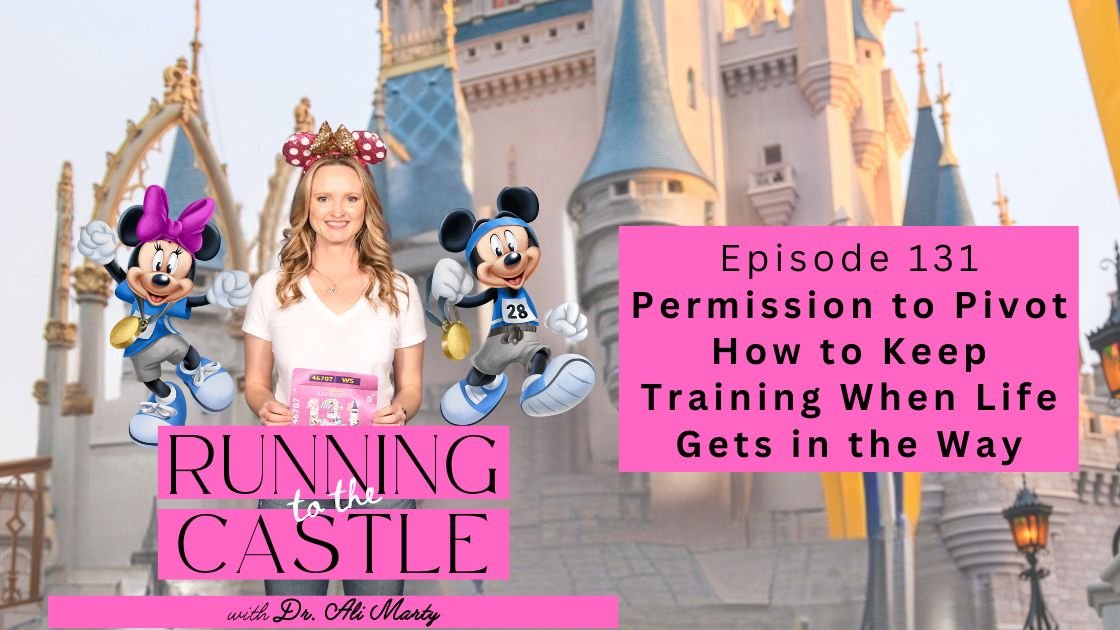





























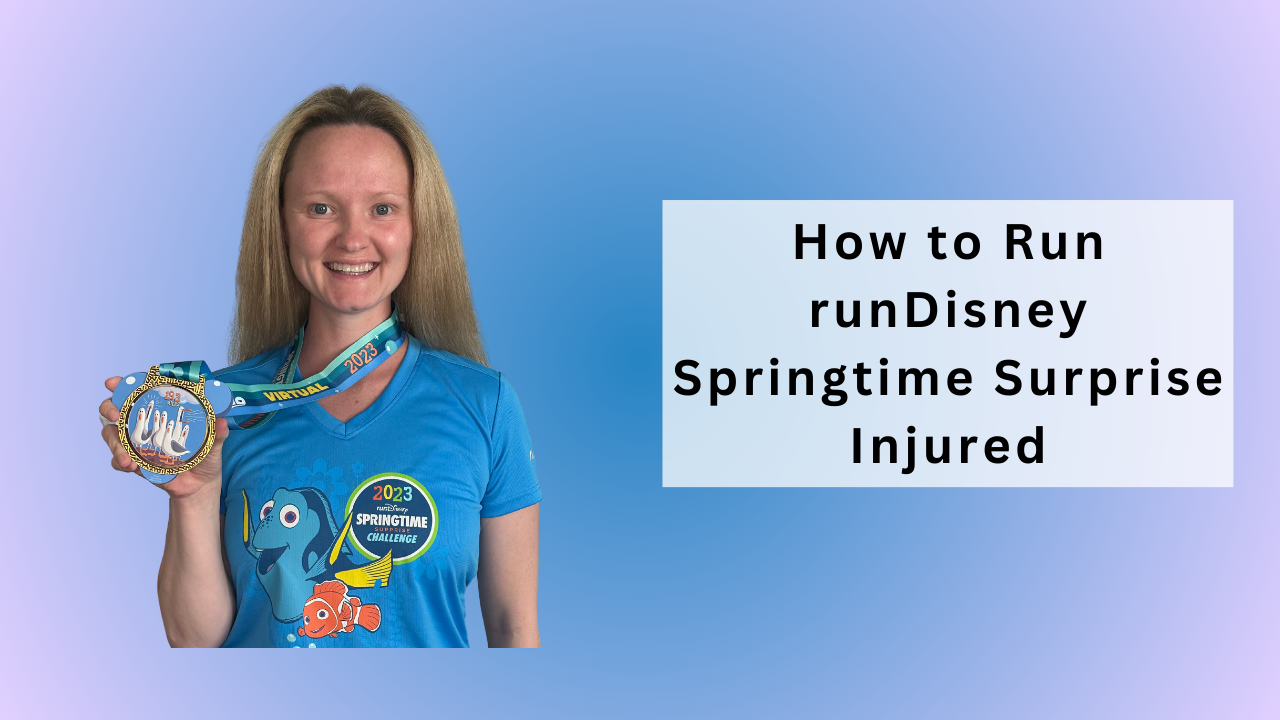











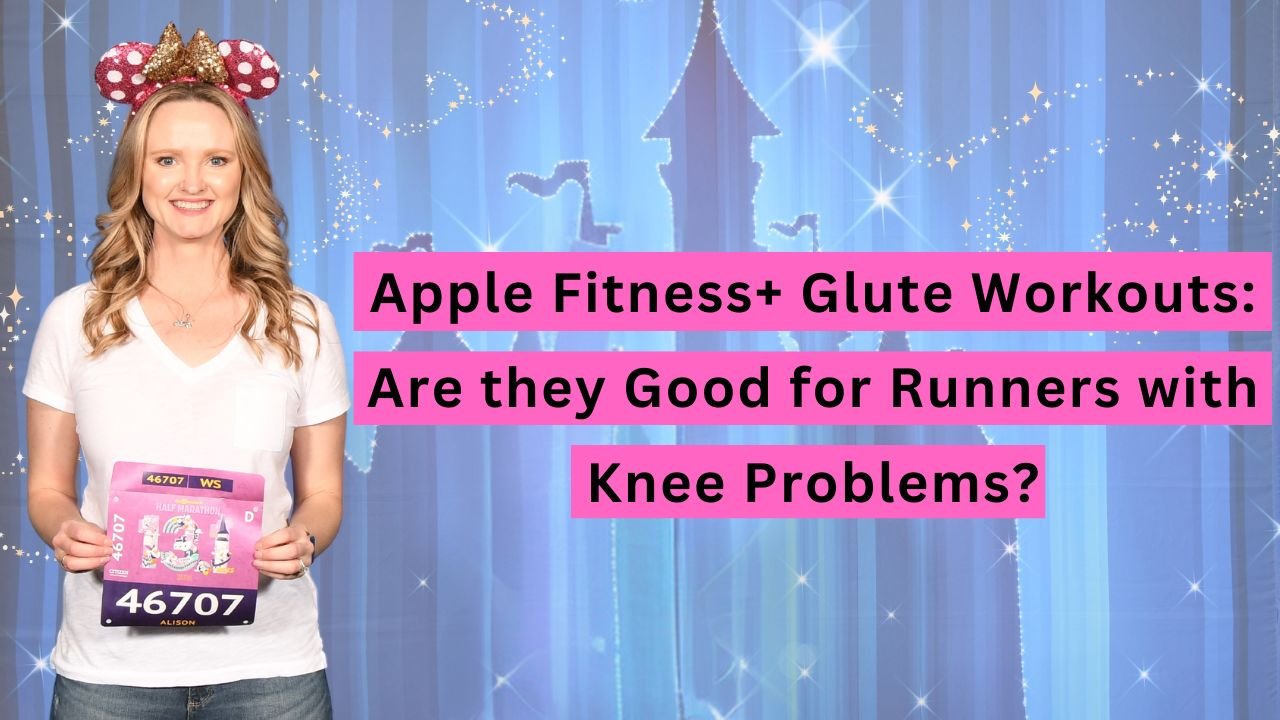

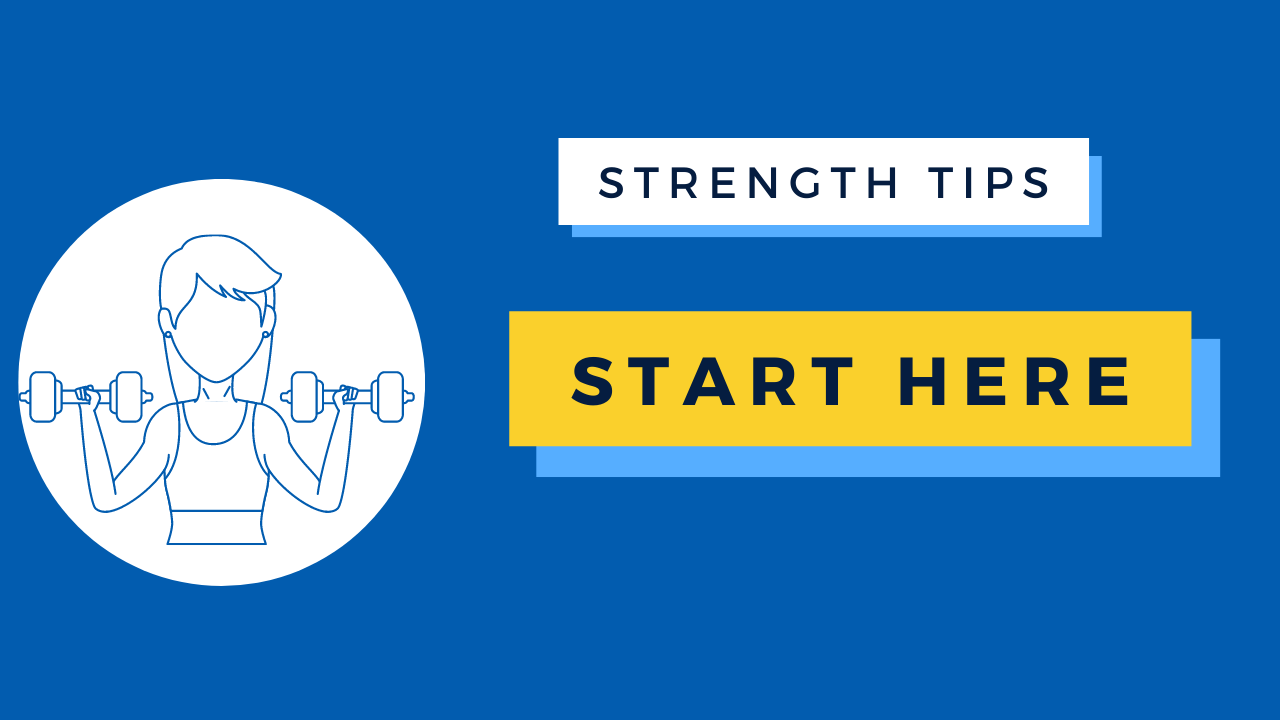
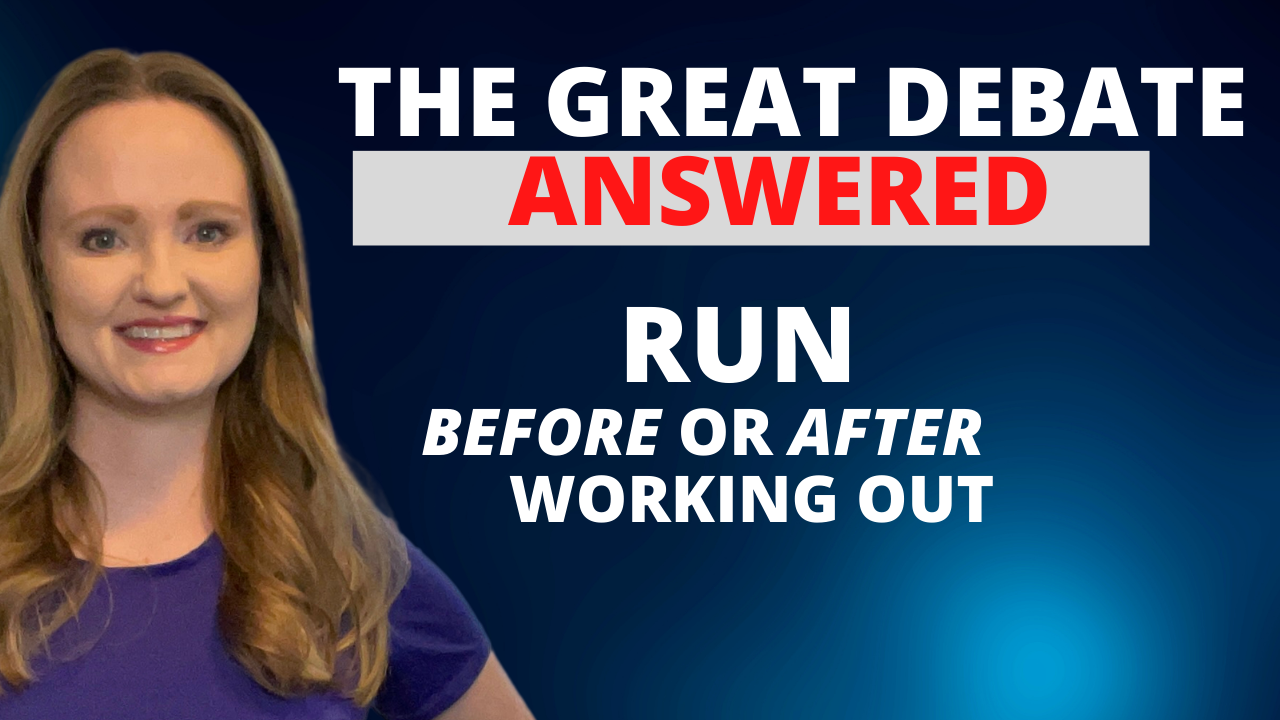



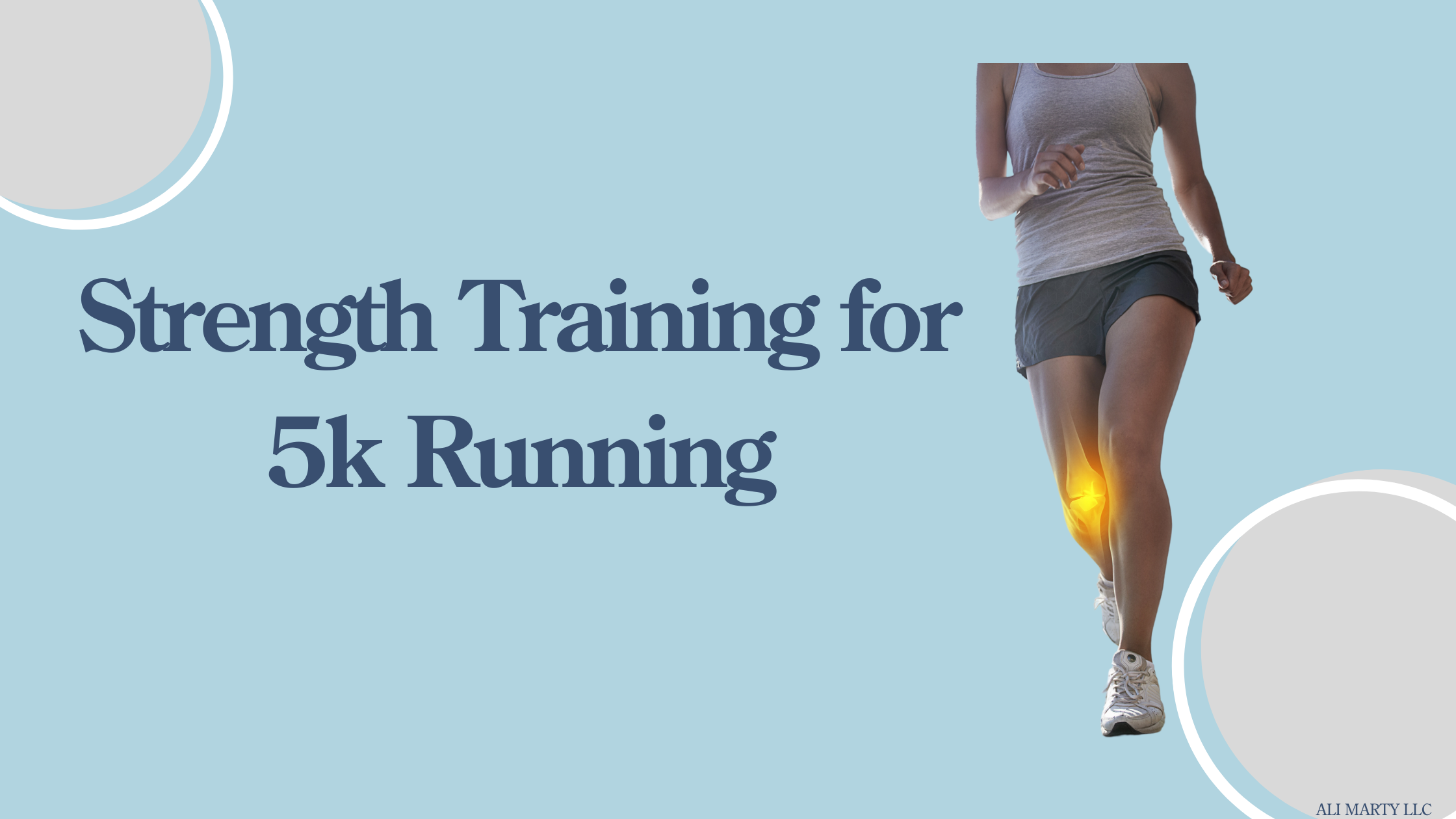

In this episode of Running to the Castle, you’ll learn why motivation isn’t something you either have or don’t—it’s something you build.